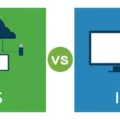Cryptography is an important field of study that has been around for centuries, and it’s only becoming more important as technology advances. It’s used to protect the privacy and security of information, including data sent over networks or stored in databases. But what is cryptography exactly? How do you go about learning it? In this blog post, we’ll answer these questions and provide some tips on getting started with cryptography.
Cryptography is a branch of mathematics that deals with transforming data into a form that can only be understood by someone who knows the correct key or algorithm. It can be used to both encrypt data (making it unreadable to anyone without the key) or authenticate it (ensuring the integrity of the data). Cryptography relies on certain principles related to probability theory, number theory, algebraic structures, and computational complexity theory.
So how do you go about learning cryptography? The best way is to start with a good introductory course in computer science. Many universities offer courses on topics such as algorithms, computer security, and cryptography. These courses will give you a solid foundation in computer science before delving into cryptography specifically. Once you have this knowledge under your belt, there are plenty of great resources out there for furthering your understanding of cryptography:
• Coursera offers an excellent course on Cryptography 1 taught by Dan Boneh
• Chris Paar’s lectures on Cryptography are available for free on YouTube
• Douglas Stinson’s book Cryptography: Theory and Practice is a great resource for gaining further insight into the topic
• William Stallings’ book Cryptography and Network Security offers another comprehensive look at the subject
• Finally, Schneier on Security by Bruce Schneier provides an excellent primer for those just getting started with cryptography
In addition to these resources, there are plenty of other websites and forums devoted to discussing cryptographic concepts. The Crypto StackExchange is one such forum where people can ask questions related to their research or discuss any issues they may be having while studying cryptography.
Cryptography isn’t easy to learn but with some dedication and hard work, you can become proficient in this field. Start off by taking a course in computer science and then use the resources mentioned above to gain an understanding of cryptographic concepts. Don’t forget there are plenty of online forums out there where you can ask questions and get help from experienced cryptographers!

Learning Cryptography
Cryptography is not necessarily easy to learn, particularly for those without a background in mathematics or computer science. It relies on complex mathematical principles which many find difficult to understand. Furthermore, cryptography involves a variety of algorithms and protocols that require a great deal of knowledge and skill to master. Those with a background in mathematics or computer science may find the subject easier to understand, but even they may struggle with certain aspects of cryptography. For those without such a background, cryptography can be an especially difficult subject to learn. However, with dedication and practice, it is possible for anyone to gain an understanding of the basics of cryptography.
The Basics of Cryptography
Cryptography is the practice of protecting information and communication through the use of mathematical techniques and algorithms. It encompasses a wide range of techniques, including encryption, digital signatures, and key exchange protocols, to ensure the secure transmission of data between two or more parties.
At its core, cryptography relies on two fundamental elements: an algorithm (or cipher) to transform plaintext into ciphertext, and a key to decrypt the ciphertext back into plaintext.
The algorithm typically works by rearranging the plaintext’s characters in such a way that it becomes unrecognizable when viewed without the key. This makes it difficult for anyone without access to the key to deciphering the message. In addition, different algorithms will use different methods for transforming plaintext into ciphertext. For example, some algorithms may substitute each character with another character from a predetermined list while others may perform mathematical operations on each character within the plaintext.
In order for cryptography to be effective, both parties must have access to an identical copy of the key used for encryption and decryption. The sender will use their key to encrypt a message prior to the transmission while the receiver will use their own identical copy of the same key in order to decrypt it upon receipt. Additionally, cryptographic keys can vary in length; longer keys are generally seen as more secure due to their increased complexity and difficulty in being cracked by malicious actors.
What is the Average Salary of a Cryptographer?
Cryptographers are highly skilled professionals who specialize in the practice of cryptography, which is the art of writing or solving codes. They use their expertise to create secure systems for banks, government agencies, and other organizations. As such, they are often well compensated for their efforts.
According to Payscale, the average base salary for a cryptographer is $104,717 per year. That figure can vary significantly depending on the individual’s experience level and other factors such as geographic location. Cryptographers with 5-9 years of experience typically make an average annual base salary of $117,000, while those with 10-19 years of experience earn around $128,000 per year. Those with 20+ years of experience may even make upwards of $143,000 annually.
In addition to base salary, cryptographers may also receive additional incentives such as bonuses or stock options. These extra benefits can increase a cryptographer’s total compensation by thousands or even tens of thousands of dollars each year.
Overall, it is clear that cryptographers are well-paid professionals who can enjoy high salaries and other rewards for their hard work.
The Role of Mathematics in Cryptography
Yes, cryptography is a lot of math. Cryptography professionals rely heavily on mathematical principles, such as linear algebra, number theory, and combinatorics, in order to design and decipher strong encryption systems. These mathematical principles are used to create algorithms that can encode information in such a way that only authorized parties can access it. In addition to these principles, professionals often use probability theory and statistical analysis to ensure that their cryptographic solutions are secure. As a result, those who work in cryptography must have an advanced understanding of mathematics.
Can Cryptographers Expect High Salaries?
Yes, cryptographers make a lot of money. The average annual salary for a cryptographer is over $145,356 and the top earners can make as much as $195,000 or more per year. This means that the majority of cryptographers are making above-average salaries compared to other professions. Cryptographers may also receive additional bonuses or incentives based on their performance. These compensations can further increase overall earnings. With its high salary potential, a career in cryptography is certainly financially rewarding.
Teaching Oneself Cryptography
Yes, you can teach yourself cryptography. CyberStart is an excellent way to start building upon your knowledge of cryptography and encryption techniques. With interactive challenges and tutorials, you can get hands-on experience with different methods of cryptography. You will have the chance to explore a range of topics, from basic cryptography concepts to more advanced techniques like public-key encryption and digital signatures. The write-ups and video tutorials provide further detail that helps you understand each challenge or concept. Additionally, there are online communities where you can ask questions, discuss ideas and share resources with other enthusiasts interested in cryptography. By leveraging these resources and dedicating yourself to learning more about cryptography, you can develop a comprehensive understanding of this field.
How Long Does It Take to Become a Cryptographer?
Becoming a cryptographer usually takes 6-9 years, depending on the level of education and experience needed. Most positions require at least five years of professional experience, though education can sometimes substitute for some of this experience. Many cryptographers have a bachelor’s degree in mathematics, computer science, or a related field. This can take up to four years to complete. In addition, they may need certifications in cryptography or security to demonstrate their proficiency. Depending on the specific requirements of each position, these certifications can take an additional 1-2 years to obtain.
The Language Used in Cryptography
Cryptography is a branch of mathematics that is used to secure sensitive information. As such, certain programming languages have been developed specifically for use in cryptography. The most widely used of these languages is Cryptol, a domain-specific language developed by Galois, Inc. of Portland, Oregon. Cryptol has been utilized by the United States National Security Agency (NSA) since its development in 2005 and is also used by many other organizations around the world.
Cryptol features a concise syntax with concise control structures and support for various mathematical operations and functions, making it an ideal language for cryptographic algorithms. Additionally, Cryptol helps developers to ensure the correctness of their code as it contains built-in verification tools to detect errors quickly and easily.
Other programming languages that are commonly used in cryptography include C/C++, Java, Python, Rust, Go, and Haskell. Each language has its own strengths and weaknesses when it comes to cryptography; however, Cryptol remains the most widely used due to its ease of use and powerful capabilities.
The Value of Learning Cryptography
Yes, it is certainly worth learning cryptography. Cryptography provides a powerful tool for protecting data and communication from unauthorized access. By understanding the fundamentals of cryptography, you can learn how to use encryption algorithms to protect sensitive information and how identify potential security risks. Additionally, familiarity with cryptography can help you recognize weaknesses in existing systems and develop solutions to address them. In short, learning cryptography is an invaluable asset in today’s digital world.
The Demand for Cryptography
Yes, cryptography is in high demand. The need for strong encryption technology to protect organizations’ data is growing exponentially, leading to an increased need for cryptographers who specialize in this area. According to the US Bureau of Labor Statistics (BLS), the demand for information security professionals is expected to grow substantially through 2029, with job growth projected at 32%, much faster than the average for all occupations. This growth will be driven by an increase in cybersecurity threats and organizations need to protect their data and systems from malicious actors. As such, cryptographers are highly sought after by employers looking to secure their data against these threats. Cryptography offers a lucrative career path with salaries often reaching six figures or more depending on experience and location.
Conclusion
In conclusion, learning cryptography is achievable by those with and without a background in mathematics or computer science. There are many resources available to help learn the fundamentals of cryptography such as Cryptography 1 at Coursera, lectures on cryptography by Christoff Paar, Douglas Stinson’s book Cryptography: Theory and Practice, and Williams Stallings’ book Cryptography and Network Security. To master the art of cryptography, it is important to understand the mathematical concepts and rule-based calculations behind them. Finally, there are many career opportunities available for those who are proficient in cryptography, with an average base salary of $115,000 according to Payscale.








